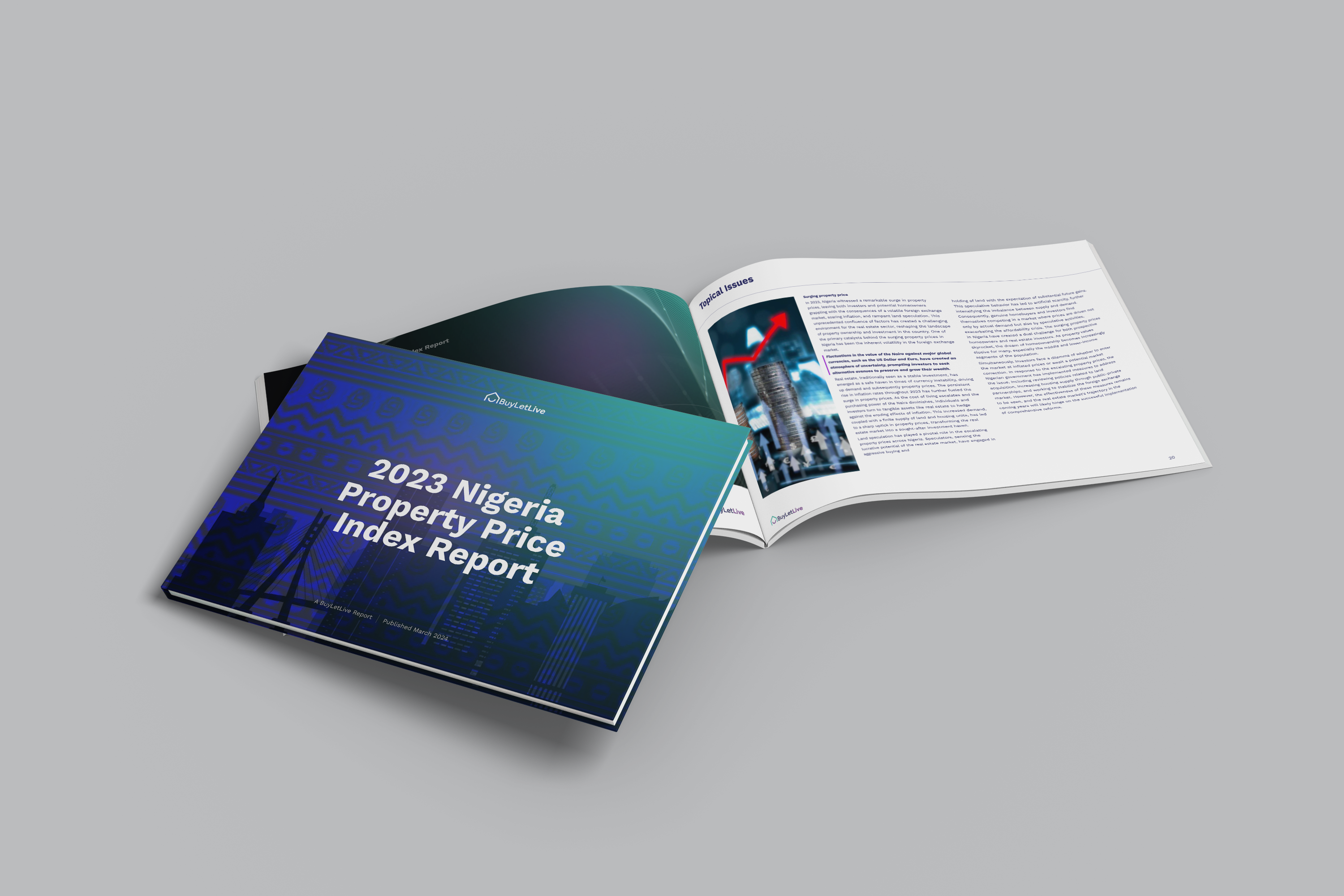The Nigerian real estate investments require an in-depth understanding of market dynamics, and this report is a must-read for anyone interested in the real estate market in Nigeria because it provides valuable insights into the real estate market in Nigeria, shedding light on key trends and fluctuations in property prices nationwide.
Here’s why you should download the report:
1. Understand the dynamics of the Nigerian real estate market:
The report offers a detailed analysis of the real estate market in Nigeria, including the impact of factors such as inflation pressures, fuel subsidy removal, and currency exchange on property prices. This information is essential for making informed decisions about your real estate investments. For instance, the removal of fuel subsidies and the eventual floating of the naira by the Nigerian government led to inflation pressures that drove up property prices across the board. Understanding these dynamics can help you anticipate trends and make strategic investment decisions.
2. Stay informed about key economic indicators:
The report includes data from the Nigerian Bureau of Statistics, which shows the real estate services sector’s contribution to real GDP and nominal GDP, as well as the construction sector’s contribution. This information is crucial for understanding the broader economic context in which the real estate market operates. For example, the real estate services sector contributed 5.58% to real GDP in Q3 2023 and 4.40% to the total real GDP and nominal GDP, respectively, in the third quarter of 2023. Construction, on the other hand, contributed 3.36% and 8.43% to total real GDP and nominal GDP, respectively, in the third quarter of 2023. This data can help you understand the overall health of the economy and how it affects the real estate market.
3. Gain insights into market performance across submarkets:
The report provides an overview of property prices across various submarkets, including residential and commercial real estate. This information can help you make informed decisions about investment opportunities in different segments of the market. For instance, in 2023, there was an overall spike in property prices, with a double-digit increase in residential real estate prices across the country in 2023 asking prices compared to 2022. Lagos and Abuja had the highest increases, underpinned by rising costs of building materials, FX volatility, and operational costs. Understanding these trends can help you identify potential investment opportunities and avoid areas with declining property values.
4. Stay updated on industry trends:
The report discusses the impact of inflation pressures, fuel subsidy removal, and currency exchange on property prices. By staying updated on these trends, you can make more informed investment decisions. For example, the report discusses the decline in activity in the commercial real estate market, particularly in large-scale prime retail and office projects, due to oversupply, a decreasing occupier pool, or the shrinking purchasing power of locales. Understanding these trends can help you anticipate future changes in the market and make strategic decisions about your investments.
5. Learn about the future outlook for the real estate sector:
The report provides an outlook for the real estate market in 2024, which can help you anticipate future trends and make strategic decisions about your investments. For instance, the report expects to see similar positives in 2024, with growth relative to the first half of the year. Understanding the future outlook can help you plan your investments and anticipate potential changes in the market.
Click here to download the report!
Frequently Asked Questions (FAQs) About The Property Price Index Report:
Q1: How can I use the insights from the report to make better investment decisions?
A1: The report provides detailed analyses of various factors influencing property prices, allowing you to anticipate market trends and make informed investment decisions accordingly.
Q2: What are the key economic indicators discussed in the report, and how do they impact the real estate market?
A2: The report covers GDP contributions from the real estate sector, inflation rates, and currency exchange dynamics, providing essential context for understanding the broader economic factors influencing the real estate market.
Q3: Are there specific regions or cities highlighted in the report where property prices have shown significant fluctuations?
A3: Yes, the report provides insights into property price movements across different regions and cities, such as Lagos and Abuja, shedding light on the factors driving these fluctuations.
Q4: How can I leverage the report to identify investment opportunities in the Nigerian real estate market?
A4: By analyzing submarket performance and future market projections outlined in the report, you can identify emerging investment opportunities and potential areas of growth within the Nigerian real estate market.
Q5: Does the report discuss any potential risks or challenges facing the Nigerian real estate market in the near future?
A5: Yes, the report discusses challenges such as oversupply in the commercial real estate sector and the impact of inflationary pressures on property prices, helping investors anticipate and mitigate potential risks.
In conclusion, downloading the BuyLetLive 2023 Nigeria Property Price Index Report will give you a comprehensive understanding of the Nigerian real estate market, which can help you make informed decisions about your investments and stay ahead of the curve in the rapidly evolving real estate sector. So, what are you waiting for? Click here to download the report!

